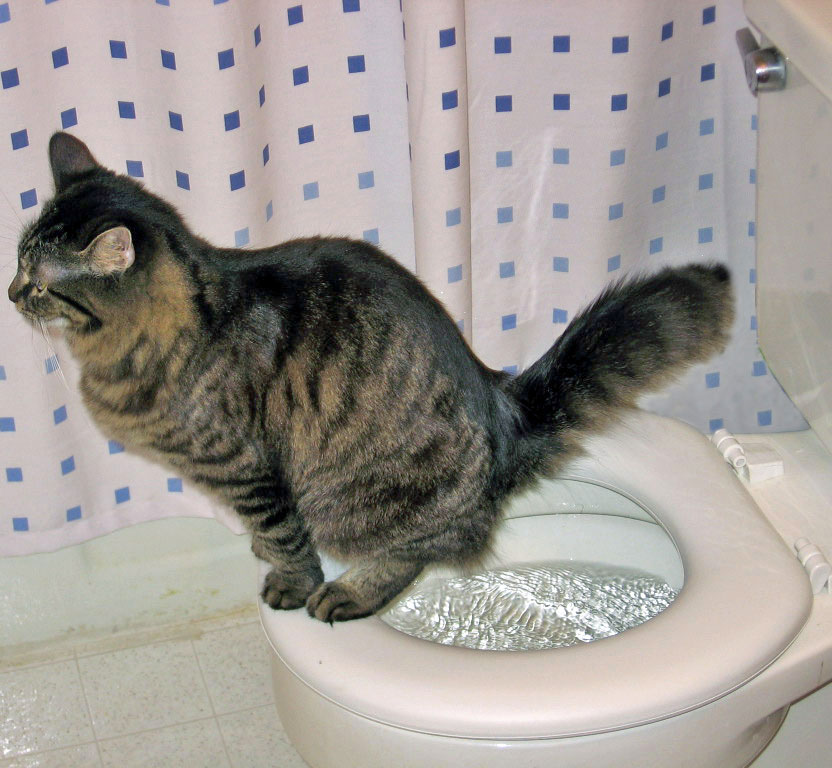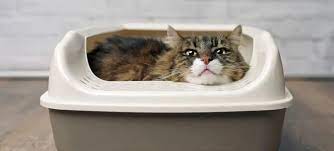What're your opinions concerning 10 Things You Should Never Flush Down The Toilet?

When it involves taking care of waste, specifically animal waste, lots of people frequently turn to the hassle-free option of flushing it down the commode. However, this relatively simple service can have significant effects for the environment and public health. In this short article, we'll check out why flushing animal waste down the bathroom is a negative idea and give different approaches for proper disposal.
Intro
Appropriate garbage disposal is critical for preserving ecological sustainability and public health. While it might appear safe to purge animal waste down the toilet, it can bring about numerous problems, both for the environment and human health.
Threats of flushing animal waste
Ecological effect
Purging pet waste introduces dangerous bacteria and microorganisms right into rivers, which can negatively influence aquatic ecological communities. These virus can contaminate water resources and harm aquatic life, disrupting fragile environments.
Public health issues
Animal waste has unsafe germs such as E. coli and Salmonella, which can position major health threats to humans. Flushing pet waste down the bathroom can pollute water products, causing the spread of conditions and infections.
Alternatives to flushing
Instead of purging animal waste down the toilet, there are several different disposal approaches that are much more environmentally friendly and hygienic.
Composting
Composting animal waste is a green means to deal with it. By composting, raw material is broken down right into nutrient-rich soil, which can be made use of to feed gardens and plants.
Land fill disposal
Getting rid of pet waste in a landfill is an additional choice. While not as environmentally friendly as composting, it is a safer option to flushing, as it prevents the contamination of water sources.
Pet waste disposal systems
There are specialized pet dog garbage disposal systems offered that safely and hygienically take care of pet waste. These systems typically make use of enzymes to break down waste and eliminate smells.
Actions to correct pet garbage disposal
To guarantee proper disposal of pet waste, adhere to these actions:
Scooping and getting waste
Consistently scoop and bag pet waste utilizing biodegradable bags. This avoids waste from contaminating the atmosphere.
Making use of designated waste containers
Dispose of bagged animal waste read more in designated waste bins, such as compost containers or landfill containers. Avoid flushing it down the bathroom whatsoever prices.
Cleaning up can and pet areas regularly
On a regular basis clean can and animal locations to avoid the accumulation of waste and germs. Use pet-safe cleaning items to preserve hygiene.
Advantages of proper disposal techniques
Adopting appropriate disposal techniques for pet waste uses a number of advantages:
Reduced environmental pollution
Proper disposal methods reduce the danger of environmental pollution, shielding rivers and ecological communities from contamination
Decreased threat of water contamination.
By avoiding flushing animal waste down the bathroom, the danger of water contamination is considerably lowered, securing public health.
Enhanced sanitation and hygiene
Correct disposal approaches promote better cleanliness and hygiene, creating a much safer atmosphere for both people and animals.
Conclusion
In conclusion, purging pet waste down the bathroom is unsafe to the setting and public health. By taking on alternate disposal techniques and adhering to appropriate waste monitoring techniques, we can decrease the adverse impact of pet waste and contribute to a cleaner, healthier world.
What To Do With Dog Poo – The Do's And Don'ts Of Disposing Of Faeces
Dog poo bins
Some councils provide dedicated dog waste bins in popular dog-walking areas that can take dog poo that has been bagged but you can legally dispose of dog waste in any public litter bin, as long as it is securely bagged. This also applies to your wheelie bin at home.
Do not flush
Water companies do not recommend flushing dog faeces down the toilet because certain parasites can survive the water processing treatment and are potentially harmful to humans. You should also never consider flushing dog poo that has been bagged down the toilet as the bags will not break down and instead create severe blockages in the sewage system.
In the woods
The Forestry Commission promotes a ‘stick and flick’ method for dealing with waste in the woods. This means finding a stick and using it to flick any poo from off the path so that it is out of the way of other walkers. You could also bury it as long as it is not in an area where there might be livestock.
Livestock
Parasites found in dog poo can be transmitted to livestock if they inadvertently eat infected faeces that has been left on grazing land. This could result in the death of sheep or abortion in cattle so you should always make sure you pick up your dog’s waste in fields where livestock could be present.

On a regular basis clean can and animal locations to avoid the accumulation of waste and germs. Use pet-safe cleaning items to preserve hygiene.
Advantages of proper disposal techniques
Adopting appropriate disposal techniques for pet waste uses a number of advantages:
Reduced environmental pollution
Proper disposal methods reduce the danger of environmental pollution, shielding rivers and ecological communities from contamination
Decreased threat of water contamination.
By avoiding flushing animal waste down the bathroom, the danger of water contamination is considerably lowered, securing public health.
Enhanced sanitation and hygiene
Correct disposal approaches promote better cleanliness and hygiene, creating a much safer atmosphere for both people and animals.
Conclusion
In conclusion, purging pet waste down the bathroom is unsafe to the setting and public health. By taking on alternate disposal techniques and adhering to appropriate waste monitoring techniques, we can decrease the adverse impact of pet waste and contribute to a cleaner, healthier world.
What To Do With Dog Poo – The Do's And Don'ts Of Disposing Of Faeces
Dog poo bins
Some councils provide dedicated dog waste bins in popular dog-walking areas that can take dog poo that has been bagged but you can legally dispose of dog waste in any public litter bin, as long as it is securely bagged. This also applies to your wheelie bin at home.
Do not flush
Water companies do not recommend flushing dog faeces down the toilet because certain parasites can survive the water processing treatment and are potentially harmful to humans. You should also never consider flushing dog poo that has been bagged down the toilet as the bags will not break down and instead create severe blockages in the sewage system.
In the woods
The Forestry Commission promotes a ‘stick and flick’ method for dealing with waste in the woods. This means finding a stick and using it to flick any poo from off the path so that it is out of the way of other walkers. You could also bury it as long as it is not in an area where there might be livestock.
Livestock
Parasites found in dog poo can be transmitted to livestock if they inadvertently eat infected faeces that has been left on grazing land. This could result in the death of sheep or abortion in cattle so you should always make sure you pick up your dog’s waste in fields where livestock could be present.
Do you really like reading about Can You Flush Dog and Cat Poo Down the Toilet?? Try leaving feedback down the page. We'd be happy to see your suggestions about this blog. In hopes that you come back again in the near future. Loved our blog entry? Please share it. Help other people locate it. Thanks for taking the time to read it.
Get Estimate